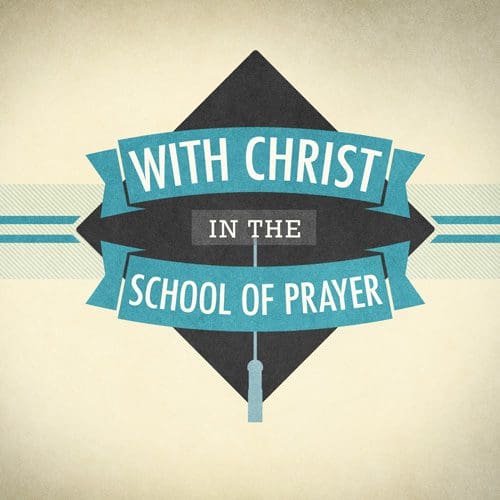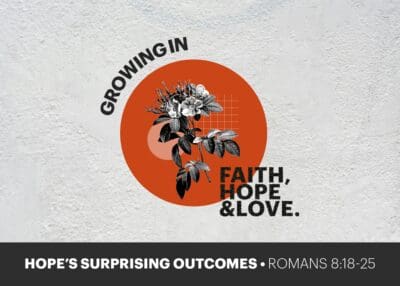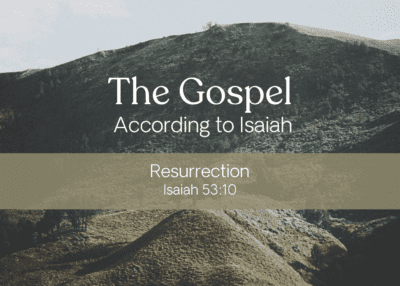How long, O LORD? Will you forget me forever? How long will you hide your face from me? How long must I take counsel in my soul and have sorrow in my heart all the day? Psalm 13:1-2
Thank God this psalm is in the Bible. We need it. We live in a suffering world and a faith, quite candidly, that does not speak to human pain is not worth taking seriously.
This psalm speaks specifically to struggles that show no sign of ending. Four times in the first two verses, we have the question, “How long?” The hardest trials to endure are not the ones that hurt most, but the ones that last longest. This is a psalm for the toughest times in human life.
When to Use This Psalm
When you endure the loss of a loved one
Nicholas Wolterstorff went through the agony of losing his son who died in a climbing accident at the age of 25. He kept a diary over the following year, and called it, “Lament for a Son.” It is a journal of a soul in agony, struggling to hold onto faith in the darkness of irreplaceable loss.
Reflecting on his experience 12 years later, in the preface to the book, Wolterstorff says:
Often I am asked whether the grief remains as intense as when I wrote. The answer is, No. The wound is no longer raw. But it has not disappeared. That is how it should be. If he was worth loving, he is worth grieving over. Grief is… testimony to the worth of the one loved. That worth abides. So I own my grief, I do not try to put it behind me, to get over it, or to forget it.
If someone asks, “Who are you, tell me about yourself,” I say, not immediately, but shortly, “I am one who lost a son.” That loss determines my identity; not all of it, but much of it. It belongs within my story. I struggle indeed to go beyond merely owning my grief toward owning it redemptively. But I will not and I cannot disown it.
Psalm 13 is a lament, so when you walk through irreplaceable loss, this psalm is for you.
When you experience strain in the family
James Boice comments on this:
It may be that the happiness of the early days of a marriage has been replaced by the stress of trying to work out… difficulties. You may be wondering if God has ceased to bless your marriage.
Your problems may involve children. You remember the early days when it was comparatively easy to rear them. Your family had many good times together. But now one or more of your children is antagonistic and rebellious, and everyone else in the family suffers under the inevitable strain. Nobody has fun anymore.
When the joy has gone out of life, when you feel that you are enduring rather than enjoying, this psalm is for you.
When you experience long term exhaustion
You have been carrying a heavy burden for a long period of time, and the strain is beginning to tell. It may be physical pain or mental anguish, or it may be the sheer weight of responsibility that God has placed on your shoulders, and you’ve been carrying it for a long period of time.
God has sustained you, but as time goes by, the burden seems to get heavier. You find yourself saying “How long, O Lord? I’m not sure I have the ability to sustain it much longer.” If you’re not in one of these situations today, thank God, and remember that many of your brothers and sisters in Christ are.
If you’ve been shaped by a form of Christianity that only speaks about prayers that are answered and faith that receives and blessings that abound, you need to take this psalm, and others like it, seriously.
We live in a suffering world, and Christian believers are not exempt from suffering. No one who takes the Bible seriously can come to the conclusion that Jesus promised his followers a pain-free life. We are followers of the one who was crucified.
God speaks to this suffering world, to life as it is. Romans 8 is one of the greatest chapters of the Bible. How does it begin? “There is no condemnation for those who are in Christ Jesus.” How does it end? “Nothing can separate us from the love of Christ.”
What do you find in the middle? Paul says, “We ourselves, who have the firstfruits of the Spirit, groan inwardly as we wait eagerly for adoption as sons, the redemption of our bodies” (Romans 8:23).
This is a “groaning psalm” and God has placed it in the Bible because at some time all of us will need it. How are you to pray when you are in an agony of soul? Here are four answers from this psalm:
Lay Out What You Feel
How long, O LORD? Will you forget me forever? How long will you hide your face from me? How long must I take counsel in my soul and have sorrow in my heart all the day? How long shall my enemy be exalted over me? Psalm 13:1-2
The most striking thing about the beginning of this psalm is the complete candor with which David lays out his struggle before God. No holds barred! David feels that he has reached his limit, and he says how it is in the presence of God. He is seeking an authentic relationship, and that can only happen with honesty.
1. The struggle with his enemy
How long shall my enemy be exalted over me? Psalm 13:2
What David is facing has gained the upper hand. It is “over” him. He feels pressed down by it. He is not prevailing over it.
If you offered a seminar to David on “How to Live the Victorious Christian Life,” he would say, “I’m not coming. That’s not for me. I feel defeated. I barely know how to keep going, let alone be victorious.”
2. The struggle with himself
How long must I take counsel in my soul and have sorrow in my heart all the day? Psalm 13:2
David’s thoughts are going round in circles: “What am I going to do? How am I going to survive?” But there never is an answer. The pain never goes away. All this never moves you forward.
3. The struggle with God
How long, O LORD? Will you forget me forever? How long will you hide your face from me? Psalm 13:1
David begins with this because it goes to the heart of the problem, “Why does God seem so far away at precisely the point where I feel my need of him most?” David lays out how he feels here. The fact that these words are given to us in Scripture should teach us that a godly believer can come to a place of feeling abandoned by God.
From his many years of experience as a pastor, James Boice says:
I am convinced that a feeling of abandonment [among Christians] is far more common than it appears to be. Many people feel abandoned – by others, first, but ultimately also by God.
He goes on to say that although this is a common problem, it seems to be one that is often ignored:
Why do you suppose this is? I think it is because we have been taught that Christians are not supposed to experience such things, that we are only to have the “life more abundantly” or to “live victoriously.”
David speaks about his experience openly, and the Holy Spirit has placed his experience of feeling utterly abandoned by God in the Scriptures for us. Speaking openly about your experience won’t solve the problem, but it’s critical to having an authentic relationship with Almighty God.
Lift Up What You Need
Answer me, O LORD my God; light up my eyes… Psalm 13:3
How would you try to help a person in your Life group who basically felt that they were abandoned by God? Suppose someone were to say to you, “I’ve been a believer for many years, but right now I feel that God has forgotten me. I’ve been praying, but I don’t get any answers. I wonder if God really cares about me at all.”
How to Help a Person Who Feels Abandoned by God
Recognize the experience
If a mature believer like David (who was a man after God’s own heart) can feel abandoned by God, no one should be surprised when a brother or sister experiences something like this.
Don’t assume the worst about a believer who feels that God has abandoned him or her. Remember, the dark valley is a part of the walk of the Christian faith
Discern the question
It is a mistake to assume that everyone who suffers is asking the question “Why?” Some people are asking “Why?” when they suffer, but others are asking “How long?” These are different questions. “Why?” is a question of meaning; “How long?” is a question of endurance.
There are many psalms that ask the question, “Why?” For example, “My God, my God, why have you forsaken me?” (Psalm 22:1). But the question here is not “Why?” It is “How long?”
The question David is asking is not, “How do I make sense of my suffering?” but “How much longer can I endure it?” It’s not a cry for wisdom, it’s a cry for strength.
It wouldn’t have helped David for us to quote Romans 8:28 to him: “God works in all things for the good of those who love him.” David would say, “That’s good, but how am I going to get through the rest of the week?”
Ask for help
The best thing that you can do to help a believer who feels overwhelmed by their sorrow, and abandoned by God is to come alongside them; to pray for them and to pray with them, especially if they do not feel able to pray for themselves.
Notice how and what David prays here: “Consider and answer me, O LORD my God; light up my eyes…” (Psalm 13:3). “Light up my eyes…” That’s a prayer for strength.
When a person is in an agony of soul, as David was, they’re not looking for an answer, and it won’t help much if you try to give one. What they’re looking for is strength—a sense of the help and the presence of God—that’s why the best way you can help is to come alongside in genuine sympathy and help them draw near to the everlasting God in prayer.
Follow David’s example. He asks God to “light up his eyes.” Lord, help me to see you. Help me to find strength. Help me to press on.
Lean Into What You Know
But I have trusted in your steadfast love; Psalm 13:5
This is the great Bible word hesed, beautifully translated “steadfast love.” This is love that lasts, love that you can count on. God’s love for you had no beginning and it will have no end. In the eternity of the nature of the triune God, he has loved you with an everlasting love.
The issue that David is facing shows no sign of going away. It has been going on for a long time, and the question is “How long?” David dares to believe that God’s love for him will go longer than his suffering, that God’s love will outlast the pain that he endures!
David confronts the pain of his long-lasting sorrow with the reality of a longer lasting love. In the middle of all this he says, “I have trusted in your steadfast love.”
There are times in the Christian life when the love of God is known by faith and by feeling. There will also be times in your life when God’s love is known by faith alone. There is a gritting of David’s teeth in what he says here. It is a marvelously courageous statement of faith: “I have trusted in your steadfast love, however long this trial continues.”
Then David says something else: “I will sing to the LORD, because he has dealt bountifully with me” (Psalm 13:6). The singing is future. But when David says that God has dealt bountifully with him, he is leaning into what he has already experienced.
How can David say this? Think about the bigger picture of David’s life. He was a shepherd, and yet by God’s grace he has become a king. He was a sinner, and yet by God’s grace he had been forgiven. He was a sufferer, and yet by God’s grace, he has a future of unclouded joy.
David leans into this, and he says “Not only have I trusted in your steadfast love, but you have dealt bountifully with me.” Think about the bigger picture of your life.
Look At Jesus Christ
We called this series, “With Christ In the School of Prayer.” The mind of Christ was saturated with these psalms. He would have recited them in the synagogue. He used them. He experienced them. And he is with us when we pray them.
What does Jesus know about this psalm? How does it relate to him?
Did Jesus ever know what it is to be in an agony of soul? Yes! “In the days of his flesh, Jesus offered up prayers and supplications, with loud cries and tears…” (Hebrews 5:7).
Did Jesus ever know what it was like to say “How long?” Yes. He was “the man of sorrows and familiar with suffering.” In the Garden of Gethsemane he said, “My soul is very sorrowful even to death” (Matthew 26:38).
Did Jesus ever know what it was like for the Father to hide his face? Yes! He cried out from the cross with a loud voice, “My God, my God, why have you forsaken me?” (Matthew 27:46).
Christ knows what it is to be in an agony of soul. That’s why he is there for you when you suffer. Christ is the Savior for those who suffer because he is the suffering Savior.
John Stott says this so well in a moving passage from his book “The Cross of Christ,”
I could never myself believe in God, if it were not for the cross… In the real world of pain, how could one worship a God who was immune to it?
I have entered many Buddhist temples… and stood respectfully before the statue of the Buddha, his legs crossed, arms folded, eyes closed, the ghost of a smile playing round his mouth, a remote look on his face, detached from the agonies of the world. But each time after a while I have to turn away.
In my imagination I have turned instead to that lonely, twisted, tortured figure on the cross, nails through hands and feet, back lacerated, limbs wrenched, brow bleeding from thorn pricks, mouth dry and intolerably thirsty, plunged in God-forsaken darkness. That is the God for me!
That is the only God for a suffering world, the only God for you, the only God for me.
As we approach Veteran’s Day, I want you to know about Edward Shillito, who experienced the horrors of The First War. Many people who endured this felt that they could no longer believe in God. But Shillito went a different way. The horrors of war convinced him that a suffering world needs a suffering Savior. He wrote a poem called, “Jesus of the Scars.” In these lines he is speaking of the world of religion with all its varieties…
The other gods were strong; but you were weak;
They rode, but you stumbled to a throne;
But to our wounds only can God’s wounds speak,
And not a god has wounds, but you alone.
The wounds of Christ are his credentials to a suffering world. And by God’s grace, he came through it, and by God’s help, you will, too.





